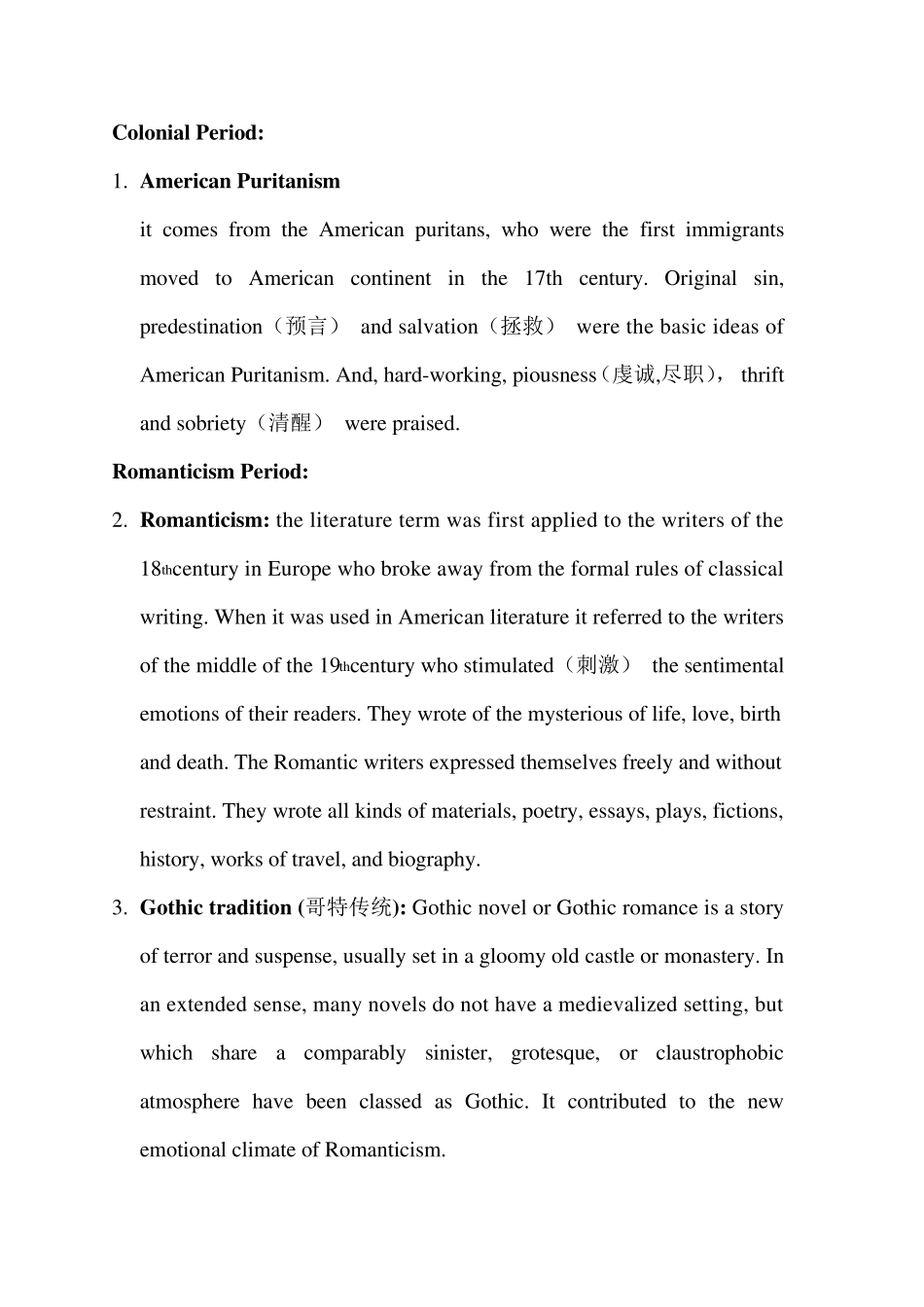Colonial Period: 1. American Pu ritanism it comes from the American puritans, who were the first immigrants moved to American continent in the 17th century. Original sin, predestination(预言) and salvation(拯救) were the basic ideas of American Puritanism. And, hard-working, piousness(虔诚,尽职), thrift and sobriety(清醒) were praised. Romanticism Period: 2. Romanticism: the literature term was first applied to the writers of the 18thcentury in Europe who broke away from the formal rules of classical writing. When it was used in American literature it referred to the writers of the middle of the 19thcentury who stimulated(刺激) the sentimental emotions of their readers. They wrote of the mysterious of life, love, birth and death. The Romantic writers expressed themselves freely and without restraint. They wrote all kinds of materials, poetry, essays, plays, fictions, history, works of travel, and biography. 3. Gothic tradition (哥特传统): Gothic novel or Gothic romance is a story of terror and suspense, usually set in a gloomy old castle or monastery. In an extended sense, many novels do not have a medievalized setting, but which share a comparably sinister, grotesque, or claustrophobic atmosphere have been classed as Gothic. It contributed to the new emotional climate of Romanticism. 4. Transcendentalism (先验说,超越论): is a philosophic and literary movement that flourished in New England, particular at Concord, as a reaction against Rationalism and Calvinism (理性主义and 喀尔文主义). Mainly it stressed intuitive understanding of God, without the help of the church, and advocated independence of the mind. The representative writers are Emerson and Thoreau. 5. Stream of consciou sness(意识流): It is...


